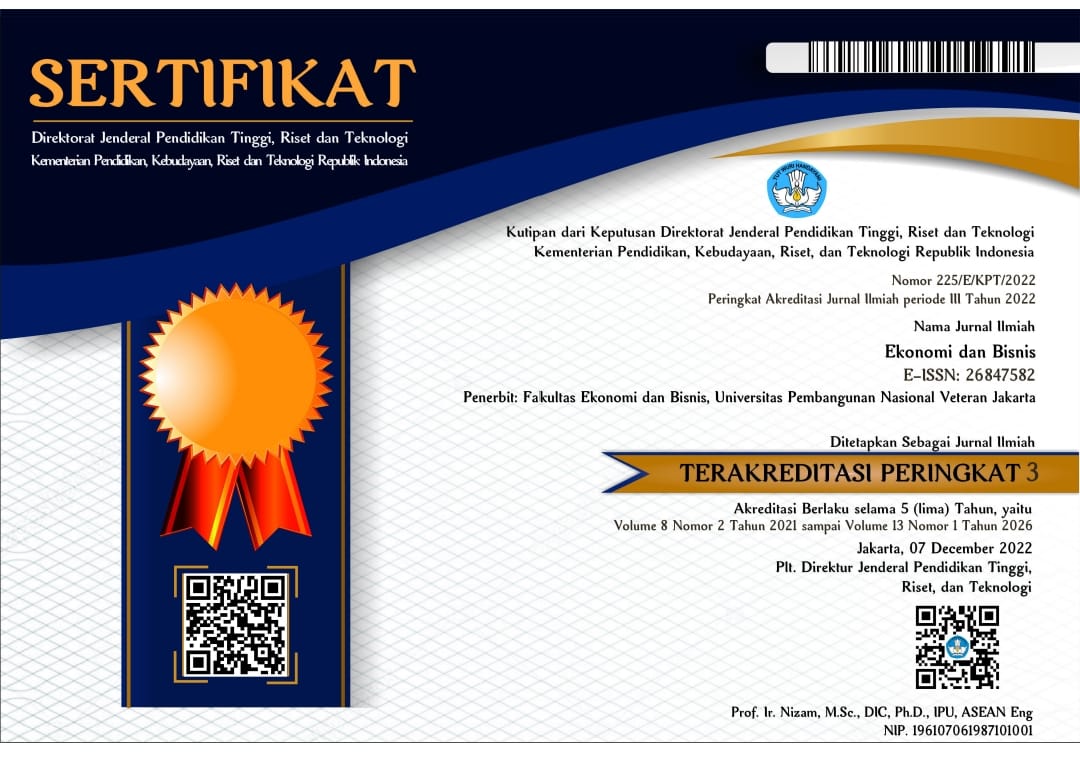Management Control System and Firm Performance in Nepalese Commercial Bank
DOI:
https://doi.org/10.35590/jeb.v11i1.8209Abstrak
This study focused on the interplay of control levers and organizational learning as well as the impact of Management Control Systems (MCS) on firm performance in Nepalese Commercial Banks. The study aims to examine the relationships between MCS levers (belief, boundary, diagnostic, interactive) and firm performance and assess the mediating role of organizational learning in this relationship. The study was done using descriptive and causal-comparative design, where a survey was carried out by deriving the responses from the employees of various commercial banks in Kathmandu. The findings of the study highlighted the significant correlations between MCS, organizational learning, and performance, highlighting MCS as a key tool for enhancing performance in the Banking sector. This study acknowledges limitations such as focusing only on Kathmandu and suggests future research to expand geographically and explore other sectors for broader applicability.
Keywords: Management Control Systems, Levers of Control, Organizational Learning, Banking Sector.e other sectors for broader applicability.
Unduhan
Diterbitkan
Cara Mengutip
Terbitan
Bagian
Lisensi

Artikel ini berlisensi Creative Commons Attribution 4.0 International License.
Kebijakan yang diajukan untuk jurnal yang menawarkan akses terbuka
Syarat yang harus dipenuhi oleh Penulis sebagai berikut:
- Penulis menyimpan hak cipta dan memberikan jurnal hak penerbitan pertama naskah secara simultan dengan lisensi di bawah Creative Commons Attribution License yang mengizinkan orang lain untuk berbagi pekerjaan dengan sebuah pernyataan kepenulisan pekerjaan dan penerbitan awal di jurnal ini.
- Penulis bisa memasukkan ke dalam penyusunan kontraktual tambahan terpisah untuk distribusi non ekslusif versi kaya terbitan jurnal (contoh: mempostingnya ke repositori institusional atau menerbitkannya dalam sebuah buku), dengan pengakuan penerbitan awalnya di jurnal ini.
- Penulis diizinkan dan didorong untuk mem-posting karya mereka online (contoh: di repositori institusional atau di website mereka) sebelum dan selama proses penyerahan, karena dapat mengarahkan ke pertukaran produktif, seperti halnya sitiran yang lebih awal dan lebih hebat dari karya yang diterbitkan. (Lihat Efek Akses Terbuka).

_1.png)


